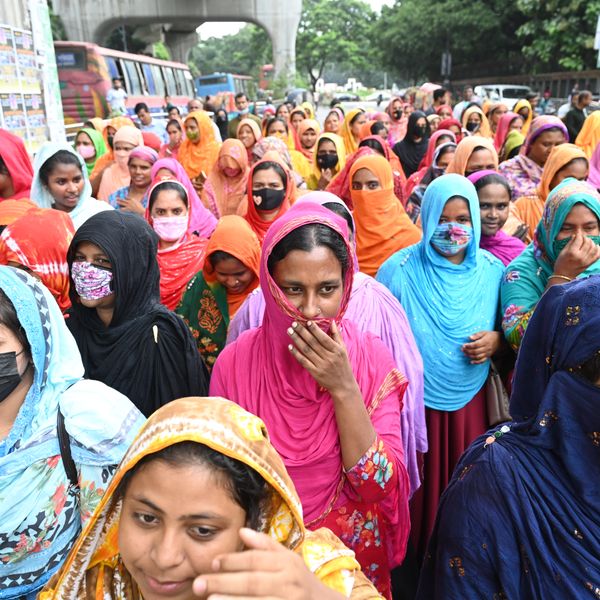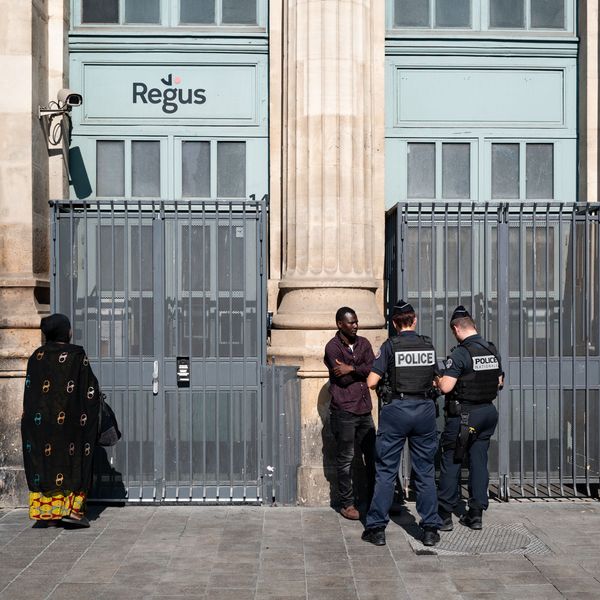So-called 'burkini bans' in France have come under fierce criticism after images surfaced this week of police in Nice surrounding and forcing a Muslim woman to remove some of her clothes.
A burkini, or burquini, is a full-body swimsuit "intended to accord with Islamic traditions of modest dress," as Wikipedia put it.
Last week, Nice became the latest of 15 French towns to ban the garment, arguing that it "overtly manifests adherence to a religion at a time when France and places of worship are the target of terrorist attacks." Last month, 86 people were killed in the seaside resort town when a truck drove into a Bastille Day celebration.
Muslim women say that the laws, and police enforcement of them, have emboldened citizens to "freely" shout "racist terms" at people for wearing the modest attire.
Further, critics say that the ban not only amounts to discrimination and overreach, but it effectively uses the language of human rights to limit human rights.
In a New York Times op-ed on Wednesday, Asma Udden, director of strategy at the Center for Islam and Religious Freedom, explained how the same "twisted logic" at play in the burkini ban follows a pattern established by the European Court of Human Rights, that "Muslim women in head scarves and burqas are simultaneously victims, in need of a government savior, and aggressors, spreading extremism merely by appearing Muslim in public."
Udden cites Article 9 of the European Convention on Human Rights, which protects the freedom of religion.
"[T]his includes the right of a person 'in public or private, to manifest his religion or belief, in worship, teaching, practice, and observance,'" she notes. "However, a further clause allows for exceptions--limits on the manifestation of belief as 'necessary in a democratic society in the interests of public safety, for the protection of public order, health or morals, or for the protection of the rights and freedoms of others.'
"By couching prejudice and fear in the language of Article 9 exceptions, the court in effect uses human rights laws to limit human rights," Udden concludes.
Similarly, in a Guardian column on Wednesday, Iman Amrani, an Algerian British video journalist living in London, explains how France's specific brand of secularism effectively paves the way for suppression and abuse.
Amrani points to France's supposedly core value of laicite, which she said
interprets secularism not only as the separation of religion from the state, but also as an artificial way of claiming equality for all citizens.
In an effort to maintain this idea of equality, it's technically illegal to collect data about ethnicity or religion as we do here in the UK. To do so in France would be seen as a form of discrimination in itself.
If equality is assumed and not monitored--in employment, the police force, stop-and-searches, and higher education--that is a huge problem for minority communities.
"Laicite should in theory promote social harmony between different groups in a multicultural, multi-faith society," Amrani concludes, "but in practice it's being invoked as the reason for policing Muslims' day-to-day lives and suppressing their ability to express their faith."
France's highest court, the State Council, is expected to issue a ruling on the bans after a lower court on Monday upheld Nice's law as "necessary, appropriate, and proportionate."



